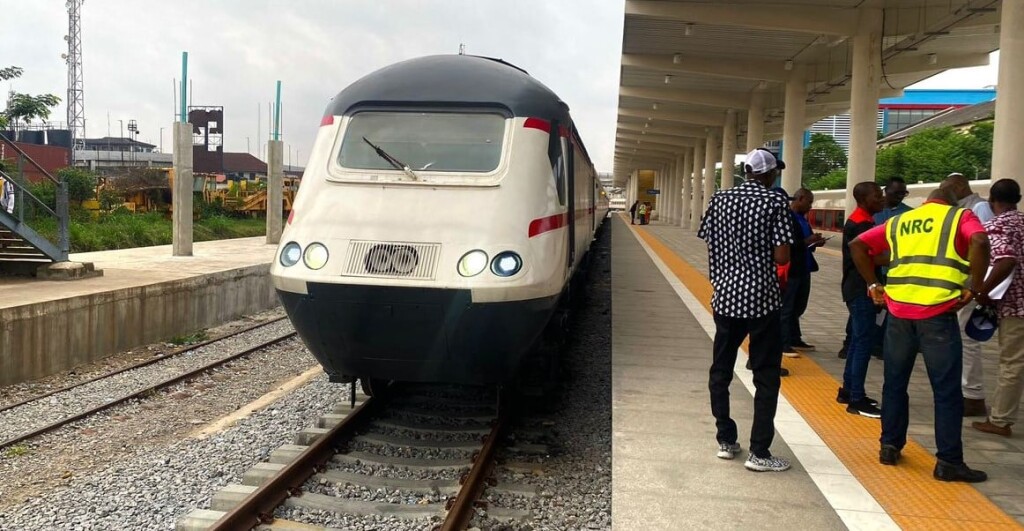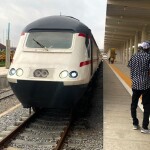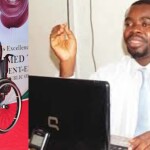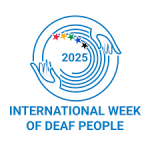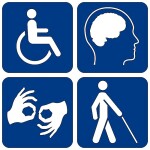The Lagos State Transport Policy has failed—by its own standard. The Red Line Rail that excludes PWDs is proof.
Gideon OLadimeji
There was something about Kayode Afolabi when he rode on the Lagos Blue Line Rail (BLR) after it launched last year. He eventually could express the zing following a round trip.
To the ableist, it’s all a trifle.
All through the commute, neither his white cane nor leg stuck between the train and the platform. The audio-visual features in the car kept informing him of the mere breathing space between the door and the platform at every stop. He didn’t barge into any prop in the aisle, either. The state, through the Lagos Agency for Metropolitan Area Transport Administration (LAMATA), and its Chinese Railway Constuction company (CRCC)in Private-Public Partnership (PPP) minded all the gaps. The train engineering and design, universal by most accessibility standards, hit all the right points. Even for Lagosians in wheelchairs. All they have to do is wheel their way through the crowded walkways, open drains, traffic snarls, and make it in one piece to any of the stations on the Mile 2-Marina corridor. The BLR train takes care of the rest, lifts and all.
The Red Line Rail (RLR) lifts are also pouring passengers onto its own platforms. Here, Afolabi could have had a different experience hopping onboard late October. The train chugged in silence from Ikeja down to Agege, two of the six stops, along the Agbado- Ebute Meta corridor. The ride could have demanded of him a surefooted maneuver, on a flight of stairs a foot removed from the platform, to get his feet in the door of a Talgo 8 Series train—which is not exactly what it is. In there, he would have relied on his third eye to know where he’d grope his way to the exit, and fumble out—if he ever felt the train pull up. That could mean for him a different story to tell.
And the yarn might have a theme of luck, lots of which PWDs must have to get representation in Lagos’ transport policy implementation. Or that of favor. Their inclusion then depends on which side of the bed LAMATA and its rainbow of partners wake up during critical stages of the rail infrastructure service delivery. The auguries were probably good about the time they implemented the BLR policy.
Not so for the RLR.
LAMATA and the group of investors First Global Commerce Solutions (FGCS) corraled for the project, under First Metro Infrastructure Limited in 2019, disregarded the minority’s support system. The Lagos Special People Law (LSPPL section 8) and the Lagos state transport policy (sections1.4, 3.5), both of which provide for accessibility in all public transport infrastructure, had no impact on the project execution, particularly the train procurement.
LAMATA didn't respond to ER questions on the policy and the previous level of exclusion in the state’s public transportation—before this PPP oversight capped it up with a train that denies PWDs access, contrary to the manufacturer's specs. Nor did the Lagos State Office for Disability Affairs (LASODA) clarified the role it played before this happened.
But members of the disability community ER interviewed believe the oversight didn't just happen. Yemisi Isado, vice chairman, JONAPWD Lagos insisted for a single policy to have delivered two similar projects with different levels of accessibility speaks to one thing: government agents’ ignorance of the disability law. Ope Akinola, an assistive technology and policy expert, said something similar. In his view, that cluelessness, by LASODA and the PP partners, makes for bad business—bad for a project the promoters are cracking up to be a booster to the social and economic development of Lagosians. Abdulwahab Matepo, president, Spinal Cord Injury Association (SCIAN), considered the oversight utter recklessness to the welfare of PWDs. The Federal Competition and Consumer Protection Council (FCCPC) didn’t respond to ER efforts seeking clarification on how this happened, and who will defend the rights of passengers with disability the RLR shuts out.
Lagos likes to take itself seriously about disability, though. Its disability law ranks about the oldest and most exhaustive among the states’. It only betrays, with its doublespeak, the tendency Matepo hit at which comes to light in policy frameworks for implementing the law provisions. So the failure—on accessibility—of the transport policy Gov. Babajide Sanwo-Olu endorsed in May comes in-built.
Only two, of all the sections in the Lagos State Transport Policy, deal with disability and inclusion. Section 1.4 puts it under “inferred expectations”. That can only mean disability got no express representation during the policy formulation. Transport Commissioner Oluwaseun Osiyemi, though, claimed in his preface “it is a well-conceptualized policy based on clear relationships among MDAs”. How much of disability LASODA infused to it is in doubt. But the drafters’ conception of accessibility—“ensuring that people can satisfy their travel needs at least cost to themselves, to others and to the environment”— disregards disability.
The second section, 3.5, addresses vehicle and infrastructure designs to ensure social inclusion. It’s about 12 years now since the LSSPL took effect. A lot of the transport infrastructure in the state—except the BLR— remains inaccessible to persons with limited mobility, especially wheelchair users.
LAMATA wouldn’t explain what led to all this oversight in the RLR project. But the government expectations ultimately jelled out—as inferred. The possibility of PWDs boarding the train never crossed Gov. Sanwo-Olu’s mind before he flew to Wisconsin, US, in 2022 to buy the train-set lying fallow at Talgo’s Milwaukee plant.The amount remains undisclosed.
The only thing he later told Lagosians, through his Information/Strategy Commissioner Gbenga Omotoso, was the train’s carrying capacity: 1500 passengers each. No concern for the 15 percent of the state population with disabilities. Which was why he saw no reason talking about the train’s accessibility and universal design.
Talgo claims in a brochure the series 8 model met the American Disability Act (ADA) accessibility standards. “That means from inception,” the marketing document states in part, “cars are designed to allow passengers with disabilities to have access to the services provided in the train set.” The restroom, the diner, and the bistro cars also allow for wheelchairs to enter and exit with ease, according to the ADA standard.
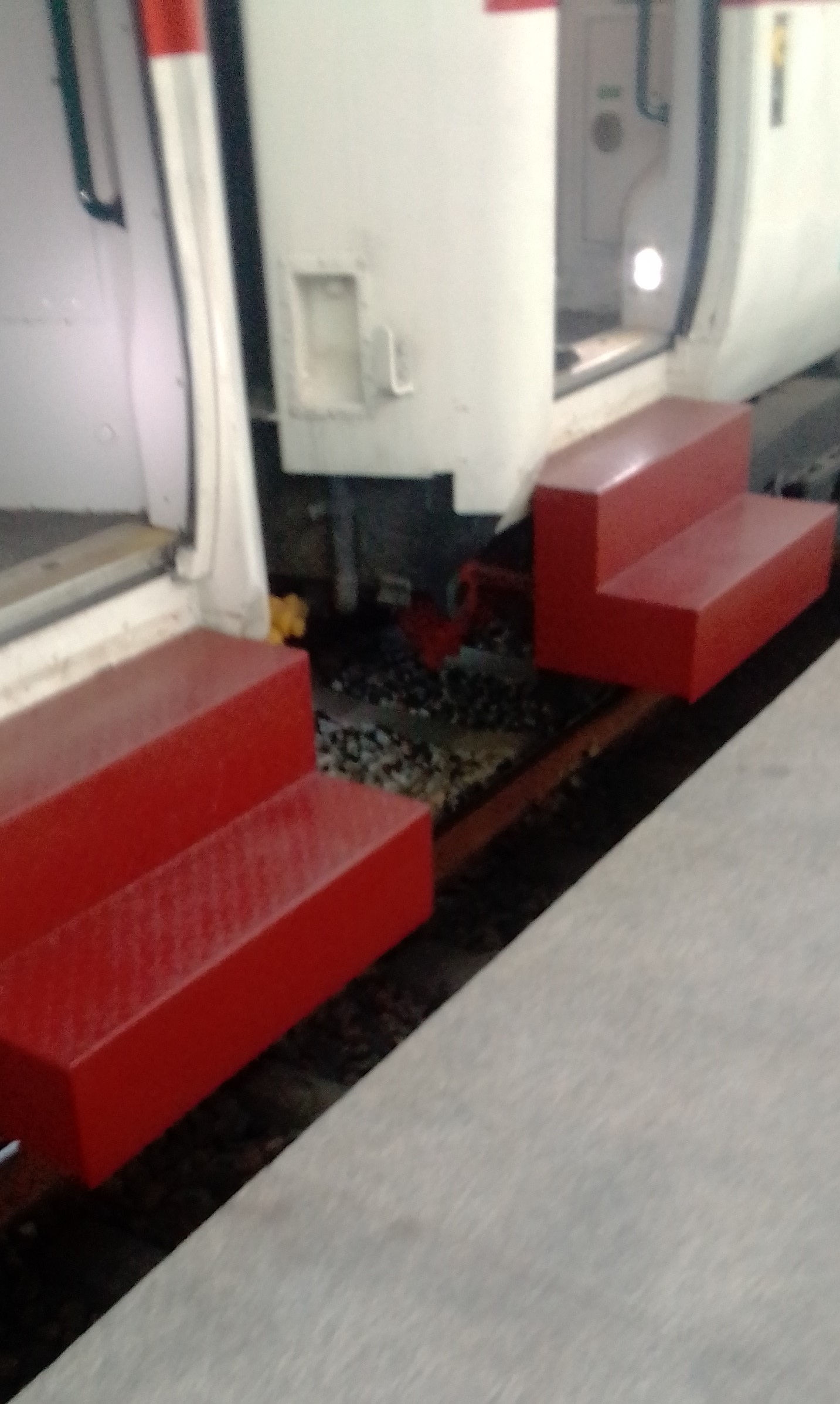
RLR Doors
Except there is another Talgo Series 8 model the manufacturer switched on Sanwo-Olu, and he kept mum. The one running on the Lagos RLR now, online train zealots revealed, is a pre-war UK Intercity 125 model made over in Lagos. And it has none of Talgo’s factory-fitted accessibility features. The restroom it has allows for no wheelchair. The train design and the platform are even a mismatch, creating a gap two-feet wide and high between the two. Entry then poses a hazard even for passengers with no disabilities. There is a red two-step staircase Talgo’s hogheads later tacked on to each exit to bridge the gap. Without handrails to grab, the contraption further stacks the odds against the blind and the wheelchair users. And the operator provides no lift to haul them in through the narrow door. Inside, steel poles staked in twos run down the aisle; passengers with limited mobility will have a hard time passing through. The deaf may not fare better, either. The train has no audio-visual communication channels for them. A passenger told ER onboard that a conductor used to announce stop-overs and other information.
“The train service isn’t meant for the disabled,” Matepo said.
A government that regards disability as add-ons would have improvised accessibility in a case like this. The only retrofitting First Metro and partners have done so far is the welding of staircases. And nobody seems bothered. Not even LASODA whose responsibility it is to ensure disability compliance.
Akinola said the office has remained what they conspired to make it: dysfunctional, under a supervising ministry instead of the governor’s office. “This was rounded off with a system for appointing a general manager that has no regard for competence,” he told ER.
The state disability law empowers LASODA to ensure the state MDAs factor disability into their policies, programmes, and services. And LAMATA, First Metro, and partners might have delivered a project that complies with Nigeria’s disability standards had LASODA lived up to expectation. But it can’t. “Majority of those working with the government have no knowledge of disabilities,” said Yemisi who is also a leader in the deaf cluster.
How much the investors in the PPP know about accessibility is still difficult to determine. First Metro, the consortium the 12-year-old FGCS registered in 2019, has no track record of rail infrastructure development in Nigeria. But its partners Yapi Merkei (a Turkish rail construction giant), Alstom (rolling stock manufacturer), Keolis and Metro Istanbul (operation and maintenance), Global Railway Engineering, and others boast decades of experience in the industry. Yet they all watched accessibility fall through the gap on this project.
LAMATA and LASODA didn’t respond to ER request for clarification on this.
By no means will their silence blur the fact of the partners’ attitude to disability on the project. “It’s a further demonstration of the disregard for the rights of PWDs to freedom of movement,” Matepo told ER.
In effect, the PWDs along the RLR corridor, and in its second phase, can’t partake of the social and economic benefits the rail delivers. And the exclusion will last—and even worsen—for the next 25 years it takes the investors to recoup their investments.
As the nation’s foremost defender of consumers’ rights, the FCCPC could address this. But ER couldn’t get the council’s response to the question of PWD’s rights First Metro and others violated here.
Members of the disability community has always known what the SCIAN president told ER. And they react to type. “For me, I will not go near where they will not welcome me,” Yemisi said.
Many will take similar decisions—for their safety and dignity.
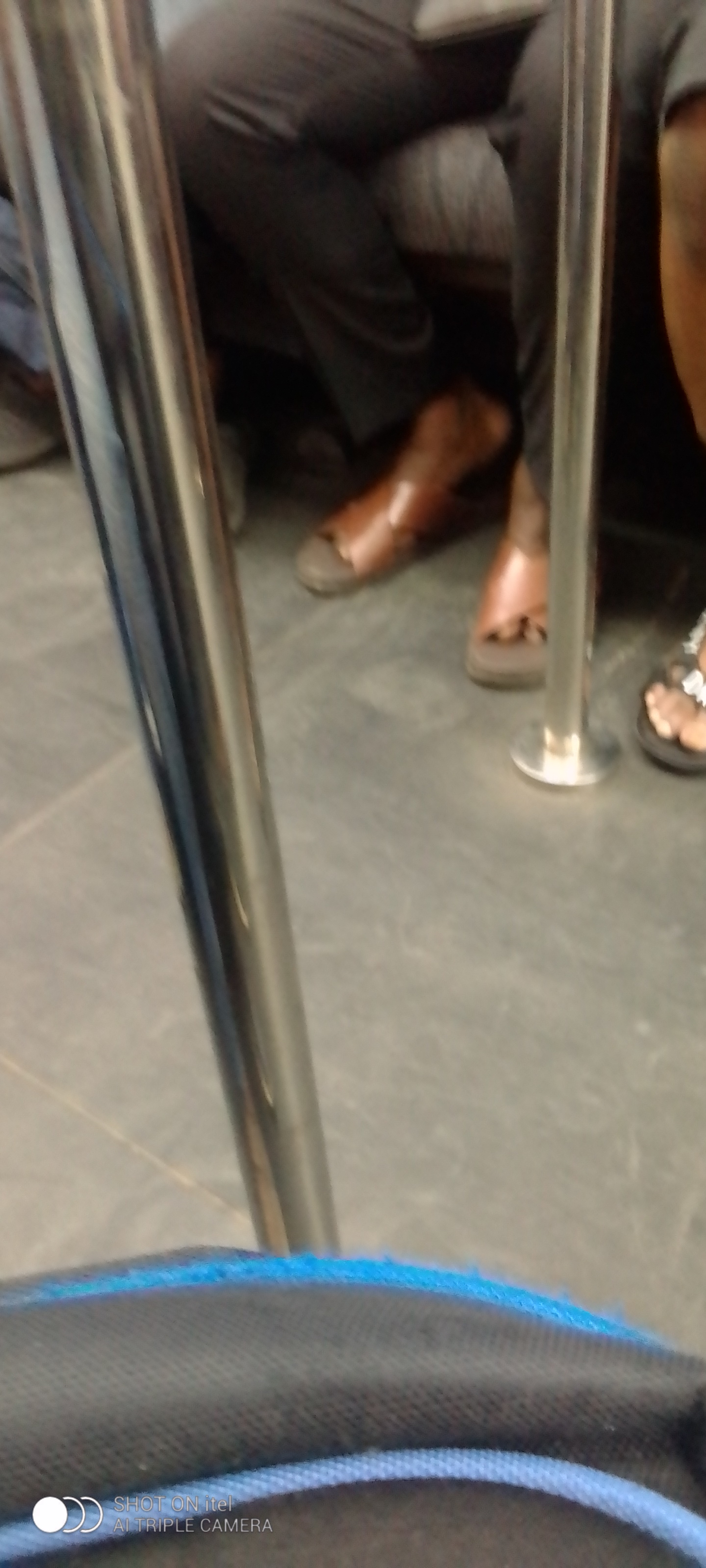
RLR Aisle
Akinola wondered why the investors didn’t know better—even if LASODA lacked the initiative to push for a universal design in the rail infrastructure and operations.
“Cutting off an estimated 15 percent of patrons is bad business planning,” he said. That stat changes on adding friends and relatives accompanying the PWDs. They all have to choose alternative means of commuting. “It is simple logic that accessibility is a business essential, and they [investors] let it slip through their fingers.”
The policy minces no word about Lagos intention to maximize profit through the involvement of the private sector. “This position reflects the simple reality that government alone cannot carry the burden of financing the realization of its vision for the transport sector,” section 3.7 states. The government focus on the partners’ bottom line—at the expense of PWDs—is now complicating the reality of the RLR. A failure of the policy itself.
In its Gender Equality and Social Inclusion section that prioritizes women, children, and PWDs, the policy lays it bare. “How the Policy impacts this group of people will be an important part of the performance indicators for the Policy,” the drafters wrote.
For LAMATA to accept it failed right off the bat, and second-guess its policy on the RLR, because of disability representation, of all problems, is a tall order. Lagosians itching to ask the transport commissioner difficult questions about the state transport policy hit a brick wall during the October 8 ASK LAGOS on X Space. The moderator simply restricted all questions to road accidents. The Q&A forum ended up an image laundering occasion for the commissioner.
Or maybe it could happen—someday. Lagosians yet to accept their disabilities will disregard the gaps, and risk their limbs (or lives) hopping on board the RLR train. LAMATA might then take a second look.

